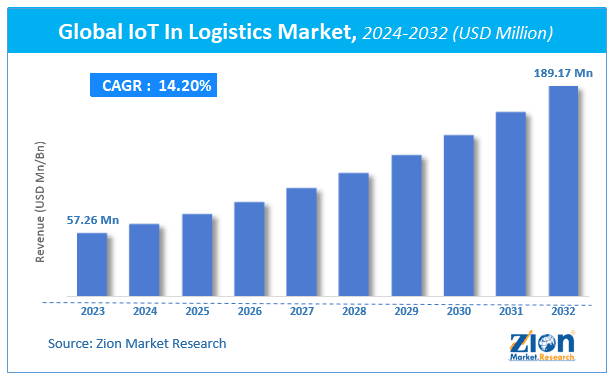How IoT Rewrites the Future of Logistics with Real-Time Monitoring
Introduction
The logistics industry is one of the highly regulated and competitive industries. The rapid adoption of connected technologies with data intelligence drives transformation in this sector. One of these technologies is the Internet of Things or IoT, which creates a seamless flow of information for the logistics industry. As a complex system of sensors, GPS tracking, automated systems, and connected devices, IoT in logistics can provide smarter insights.
This post talks about the role of IoT logistics solutions in real-time monitoring with accuracy. We will also discuss how predictive maintenance combines with this technology to empower logistics companies to operate more proactively and deliver excellent outcomes. Before moving ahead, let us delve into the scope of IoT in the logistics industry.
Scope of IoT in Logistics Operations
The evolving IoT technology extends beyond simple monitoring these days. As an intelligent and connected ecosystem, IoT handles the collection and exchange of data related to real-time tracking in logistics. As a result, your teams can track asset conditions, fleet performance, and route efficiency accurately. Moreover, reputable IoT app development companies can obtain these insights on centralized platforms to make smarter, real-time decisions.
Another advantage of IoT logistics solutions is increased customer satisfaction. Logistics companies optimize routes, get real-time alerts, and utilize available resources more effectively. This is crucial for bridging the gap in the global supply chain. Simply put, IoT in logistics can transform the existing supply networks into data-driven ecosystems, ready for the future.

Source
A recent report from Zion Market Research has revealed that the value of IoT in the global logistics market is expected to hit USD 189.17 million by 2032. This target could be a result of a CAGR of over 14 percent y-o-y from 2024 to 2032. This steady growth shows the increasing importance of IoT in the logistics industry. Let’s explore the way it drives value and benefits your business.
How Real-Time Monitoring Drives Value in Logistics
Real-time tracking in logistics is about monitoring shipments, vehicles, and assets continuously using connected devices. Here, these IoT devices can transmit live location and status data to offer real-time visibility. It translates into more profitability through accuracy in timing and delivery. Companies gain instant insights into the movement of goods, traffic patterns, and delivery progress by leveraging IoT in logistics. This can increase operational efficiency.
Moreover, real-time tracking delivers tangible business value. It also assists logistics companies in reducing delays with predictive route adjustments and enhances customer satisfaction by showing accurate ETAs. Leading US-based logistics service providers use IoT-enabled tracking systems to monitor temperature-sensitive pharmaceuticals. IoT drives transformation and increases the business value of logistics companies by making operations more transparent and responsive.
Predictive Maintenance and IoT in Logistics
Predictive maintenance has become one of the most efficient innovations in the modern logistics sector. It uses IoT in logistics to predict issues in advance. Companies integrate smart sensors and connected devices into their fleet, machinery, and warehouse systems to monitor KPIs continuously. This combination offers insights into engine health, tire pressure, humidity, and temperature control. It also ensures the detection of minor anomalies early.
Both advanced analytics and machine learning enable IoT logistics solutions to analyze historical and live data to forecast potential failures of equipment with timely notifications. For example, automated warehouses employ IoT-based maintenance to keep robotics and conveyor systems running smoothly. Preventive maintenance and IoT combination can prevent unplanned disruptions and optimize maintenance cycles in the logistics sector.
Key Business Benefits of IoT Logistics Solutions
The IoT integration in logistics can transform the way companies manage operations, drive significant improvements in efficiency, and sustainability. Let’s understand the top benefits of IoT logistics solutions for the company-
1. Enhanced Efficiency
IoT offers automation of several processes and real-time data monitoring to the sector. It assists businesses in streamlining fleet management and warehouse operations to increase efficiency.
2. Reduced Costs
IoT in logistics can help reduce fuel consumption and downtime of the vehicles. This technology, together with AI, is beneficial for route optimization and the reduction of operational expenses.
3. Predictive Maintenance
Connected devices with sensors can monitor vehicle and equipment health effectively. They support proactive maintenance for preventing unexpected failures and reducing repair costs.
4. Better Customer Experience
Real-time monitoring and predictive analytics are useful for getting accurate delivery updates with more transparency. As a result, companies can boost customer satisfaction and loyalty.
5. Higher Sustainability
This is one of the biggest benefits of smart logistics solutions. IoT-powered route optimization and fuel-efficient practices can help logistics companies achieve sustainability goals.
6. Measurable ROI
Logistics businesses can gain the advantage of fewer delays and lower maintenance costs with higher operational efficiency using IoT solutions. This can increase ROI over the period.
However, it is essential to consult a reputable IoT development company to leverage these benefits and make your logistics business ready for the future.
Looking to Build a Team of Experienced IoT App Developers for Your Upcoming Project?
LET’S CONNECTAI and IoT Integration- Future of Logistics
Smart logistics software, which consists of a seamless integration of AI and IoT, can create intelligent and responsive supply chains. When IoT in logistics combines with AI and ML technologies, companies can get the advantage of predictive analytics. This convergence is beneficial for making smarter and more insightful decisions, from fleet management to delivery. It ensures the timely and cost-effective delivery of goods and services as well.
Thinking of the IoT-driven future in the logistics industry, we can expect the rise of autonomous vehicles, drones, and smart warehouses. This rise will redefine the possibilities in multiple ways. For example, an autonomous fleet can reduce dependence on manual intervention while increasing safety, and drones can offer effective last-mile delivery solutions. AI-powered warehouses automate processes, like sorting, packing, and monitoring, intelligently with minimum human interaction.
These future-ready concepts take visibility, security, scalability, and reliability to the next level in the logistics sector. Companies need to adopt scalable IoT logistics solutions with AI and machine learning capabilities. This can enable them to cope with the evolving requirements of a technology-driven logistics ecosystem.
Concluding Remarks
The integration of IoT in logistics can give companies a strategic boost by increasing efficiency, competitiveness, and customer satisfaction. Real-time tracking, predictive maintenance, and data-driven decision-making are a few key benefits of IoT logistics solutions. The combination of these solutions with AI and other emerging technologies will make autonomous vehicles and drones more sophisticated. This will pave the way for future-ready supply chains.
Silicon IT Hub is a renowned IoT app development company in the USA and India. Our in-house team of experienced IoT developers integrates AI and ML advancements into powerful logistics solutions. Contact us to learn more about custom IoT logistics solutions to drive digital transformation for your company.





 Have an Idea?Let’s Build It Together!
Have an Idea?Let’s Build It Together!